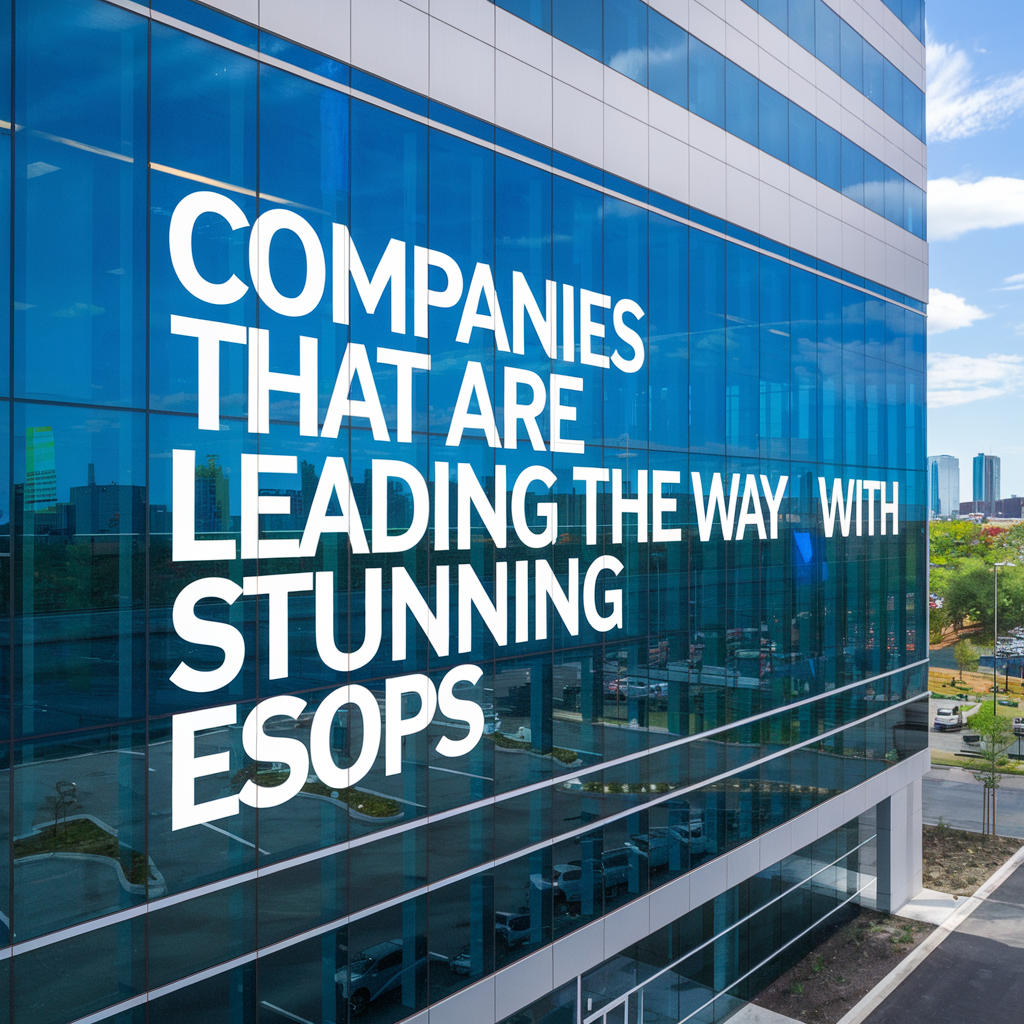When it comes to creating a workplace where employees feel truly valued, a paycheck alone doesn’t cut it anymore. Today’s workforce wants something more meaningful—a sense of belonging, purpose, and a stake in the company’s success. Employee Stock Option Plans (ESOPs), the ultimate tool for turning employees into stakeholders and building a culture of collaboration and loyalty.
Let’s understand how some companies are setting the gold standard for ESOPs in the U.S., and how Indian companies are catching up. If you’re wondering how to make ESOPs work for your organization, stick around—this guide is for you.
- Publix Super Markets
First up on the ESOP leaderboard is Publix Super Markets, the largest employee-owned company in the U.S. A grocery giant with over 200,000 employees, all of whom are stakeholders in the company’s success. How’s that for teamwork?
Publix’s ESOP model ensures that everyone is working toward the same goal. Employees understand that their efforts directly contribute to the company’s success, which, in turn, impacts their own ESOP returns. This shared ownership has created a unique culture where employees feel deeply connected to the company’s mission.
For Publix, ESOPs aren’t just a retention tool; they’re a competitive advantage. Their employees consistently deliver exceptional customer service, and the company’s performance reflects this. Employees know they are contributing to their own wealth while building a sustainable future for the organisation.
- Penmac Staffing
Next we have Penmac Staffing that stands out as one of the largest employee-owned staffing firms in the U.S. Here, every employee, regardless of role, owns a piece of the company. This structure drives engagement and accountability, as employees directly benefit from the company’s growth.
The result? Low turnover, a motivated workforce, and a stellar reputation for client service. Penmac’s ESOP model proves that shared ownership can transform employee attitudes into measurable business outcomes.
- WinCo Foods
Last, WinCo Foods, another 100% employee-owned company, uses ESOPs as a strategic tool to stay competitive in retail. By treating employees as owners, WinCo fosters an engaged workforce committed to efficiency and customer satisfaction.
This ownership mindset enables WinCo to offer competitive pricing while maintaining financial stability, proving that ESOPs are more than just a perk—they’re a blueprint for long-term success.
Bringing the ESOP Buzz to India
In India, ESOPs are gaining traction, particularly among startups and IT giants. While achieving 100% employee options through ESOPs is rare due to regulatory complexities and investor considerations, it is becoming standard practice for companies to establish ESOP pools of around 10-15% to incentivise employees and align their interests with the company’s growth.
How Indian Companies are utilising ESOPs?
Indian startups and companies alike are increasingly recognising the power of ESOPs as a tool for talent acquisition, retention, and motivation. Let’s look at a few examples:
- Flipkart: The game-changing Walmart acquisition put Flipkart’s ESOPs in the spotlight. Employees who held ESOPs walked away with significant wealth, transforming lives and highlighting how ESOPs can be more than just an incentive—they can be a life-altering opportunity.
- Zomato: The food delivery giant has successfully used ESOPs to retain and reward its core team. When Zomato went public, employees with ESOPs experienced life-changing gains, reinforcing the idea that a company’s growth can directly benefit its workforce.
- Infosys: Infosys has been a trailblazer in the Indian IT sector, leveraging ESOPs for decades. Their employee-centric approach ensures that the rewards of growth are shared, making them a magnet for top talent in a highly competitive industry.
From fintech players like Razorpay to service-oriented startups like Urban Company, ESOPs are becoming a standard practice in India’s startup ecosystem. With often tight budgets, startups use ESOPs to offer employees future value, fostering a shared vision of success.
The Challenges of ESOPs
Careful planning and structuring are critical for implementing ESOPs. Mismanagement can lead to diluted ownership, unhappy employees, or unexpected tax consequences for employees.
Also, transparency is crucial. Employees need to clearly understand how ESOPs work, what their rights are, and how they can benefit. Open communication is key to building trust and making the ESOP program a success.
Are ESOPs Right for Your Company?
If done right, absolutely!!!! ESOPs aren’t just financial perks; they represent a cultural shift that can transform your organization by turning employees into stakeholders.
Here’s how you can get started:
- Start Small: A modest ESOP pool can still have a huge impact without overwhelming your equity structure.
- Educate Your Team: Simplify the ESOP concept for employees. Host workshops, share resources, and answer their questions.
- Seek Expert Guidance: Work with legal and financial advisors (We can do this for you) to design an ESOP strategy that fits your unique needs and goals.
Whether you’re just considering ESOPs or looking to optimize your current plan, they can be a game-changer for attracting talent, building loyalty, and driving success.
Looking for more personalized guidance on managing ESOPs for your company? Book a free consultation with us today to discuss your options and craft the perfect strategy.


